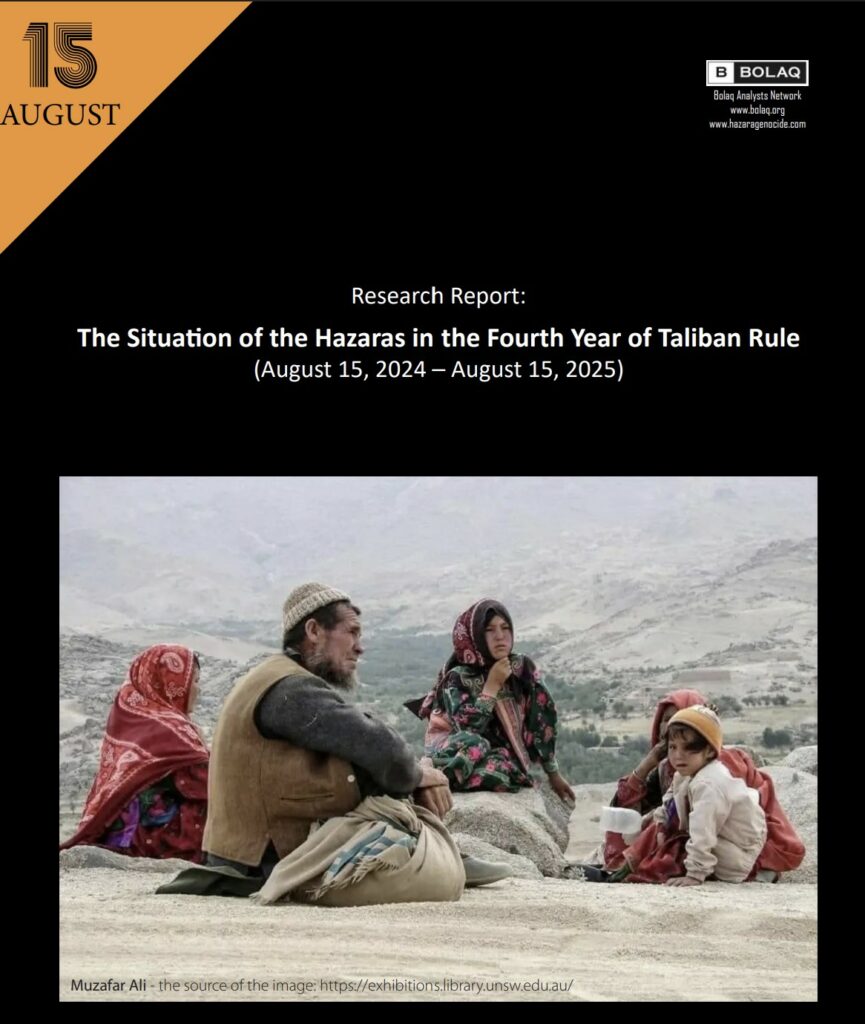August 15, 2025
Bolaq Analysts Network (BAN) is an independent, non-profit, non-governmental research and advocacy organization that publishes comprehensive and unbiased research on Afghanistan’s various social, political, and economic issues. This organization is registered in the United States. We monitor the situation in Afghanistan and document the conduct of the Taliban visa-vis the people of in accordance with international standards and carry out research in connection with various issues, especially human rights.
The current research is a follow-up of the fourth year under the Taliban regime that covers the period from August 15, 2024, to August 15, 2025.
- Bolaq Report – The Situation of the Hazaras During the Fourth Year of the Taliban Rule [ English | Dari ]
Summary and Key Findings
Four years of Taliban rule in Afghanistan have brought grave security, social, and economic challenges for the Hazara community. Life under Taliban dominance has become an unending nightmare for the Hazaras. The security situation in Hazara-inhabited areas has sharply deteriorated, with their lands being seized by the Taliban and Kochi nomads, who receive active support from the regime. Many Hazaras have been forcibly displaced from their ancestral homes. Hazara women and girls have been arbitrarily detained, imprisoned, and disappeared without any legal justification.
Socially and economically, the Hazaras face severe hardships. Many have been dismissed from government positions, and their livelihoods have been drastically undermined.
This study examines the security, social, and economic conditions of the Hazara community in the fourth year of Taliban rule (August 15, 2024 – August 15, 2025). The research employed a mixed-methods approach, combining quantitative and qualitative data, gathered through interviews with 25 individuals—including two security experts—and an analysis of questionnaires completed by a sample of 355 Hazaras residing inside Afghanistan.
(BAN) past research:
- The situation of the Afghanistan refugees in Indonesia
- The Taliban’s opposition to girls’ education
- The Hazara’s situation under the Taliban regime – Year 1 (2021-2022), Year 2 (2022-2023)

